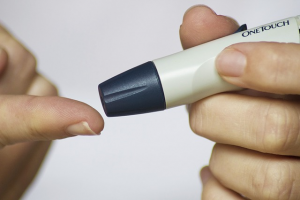
According to a 2017 report by the Centers for Disease Control and Prevention (CDC), more than 100 million US adults have diabetes or pre-diabetes. More than 30 million Americans – nearly 10% of the adult population – have diabetes, of whom more than 90% have type-2 diabetes. Moreover, more than 84 million Americans have pre-diabetes and will have full-blown diabetes within five years if they are not treated.
Type-2 Diabetes is a serious disease. It is the seventh leading cause of death in the United States. It can be managed with exercise, diet, insulin, and other drugs to control blood sugar levels.
Coenzyme Q10 for Prevention and Adjunct Treatment of Type-2 Diabetes
In a 2017 article in the British Journal of Diabetes, Dr. David Mantle, a Fellow of the Royal Society of Chemistry and of the Royal College of Pathologists, makes the following points about the use of Coenzyme Q10 supplements to prevent and treat type-2 diabetes:
- CoQ10 depletion has been implicated in the pathogenesis of diabetes.
- Coenzyme Q10 plays important roles in both mitochondrial bio-energetics and in antioxidant protection against oxidative stress.
- Supplementation with Coenzyme Q10 can significantly improve glycemic control.
- Supplementation with Coenzyme Q10 can improve vascular dysfunction.
- Supplementation with Coenzyme Q10 may be of particular importance in type-2 diabetics who have been prescribed statins.
- Supplementation with Coenzyme Q10 may be of particular importance for patients with fatty liver disease.
- Supplementation with Coenzyme Q10 is well tolerated, with no significant adverse effects reported in long-term use.
- The importance of the formulation of the Coenzyme Q10 supplement with respect to product quality and bio-availability cannot be over-emphasized.
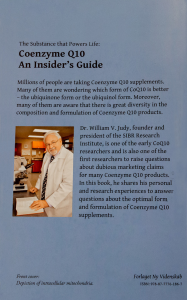
In his 2018 book, The Insider’s Guide to Coenzyme Q10, Dr. William Judy discusses the clinical research conducted with Coenzyme Q10 supplements.
Three Different Forms of Coenzyme Q10 Supplements
Coenzyme Q10 occurs in the body in three closely related chemical forms:
- the oxidized form (ubiquinone)
- the partially reduced and very unstable and transitory form (semiquinone)
- the reduced form(ubiquinol)
Dr. Mantle refutes the claim of some supplement manufacturers that ubiquinol is the more important bio-active form of Coenzyme Q10. This is incorrect because Coenzyme Q10 is continually inter-converted between the oxidized and reduced forms within the cells. Accordingly, the ubiquinone and ubiquinol CoQ10 forms have equal metabolic importance [Mantle 2017].
Dr. Mantle also disputes the claim of some manufacturers that Coenzyme Q10 can be made more water soluble. Any alteration of the molecular structure changes the CoQ10 molecules so that they are no longer Coenzyme Q10 [Mantle 2017].
Effect of Coenzyme Q10 on Blood Glucose
In his 2017 article, Dr. Mantle summarizes the clinical studies showing that CoQ10 supplementation is associated with reductions in fasting plasma glucose and in HbA1c levels.
N.B. HbA1c levels give an overall picture of what the average blood sugar level has been for a period of weeks or months.
In a 2018 meta-analysis of the study results from 13 RCTs, Zhang et al confirmed that Coenzyme Q10 supplementation may assist glycemic control [Zhang 2018].
Effect of Coenzyme Q10 on Vascular Dysfunction
Dr. Mantle [2017] explains that type-2 diabetes is characterized by an increased risk of damage to blood vessels throughout the body. Elevated blood glucose levels in type-2 diabetics cause the attachment of a sugar of the blood vessel wall proteins, resulting in endothelial cell dysfunction and in changes in red blood cell aggregation and adhesion characteristics. The damage to blood vessels is related to oxidative stress and systemic inflammation.
The increased oxidative stress is associated with reduced plasma CoQ10 concentrations. Dr. Mantle summarizes studies that CoQ10 supplementation significantly improves endothelial cell dysfunction [Mantle 2017].
He then summarizes the two randomized controlled trials of supplementation with the ubiquinone form of Coenzyme Q10:
- The Q-SYMBIO study in which chronic heart failure patients were administered Coenzyme Q10 (3 x 100 mg/day) or matching placebos for 2 years in addition to their conventional heart failure medicine. The outcome of the study was 1) improved heart function and 2) heart disease mortality reduced by 43% in the heart failure patients, of whom 10% had type-2 diabetes [Mortensen 2014].
- The KISEL-10 study in which senior citizens living at home (not institutionalized) were administered Coenzyme Q10 (2 x 100 mg/day) in combination with 200 mcg/day selenium or matching placebos for 4 years. The outcome was improved heart function as seen on echocardiograms and heart disease mortality reduced by 53% in elderly subjects, of whom 20% had diabetes [Alehagen 2013].
N.B. The study participants in the Q-Symbio study had an average age of 63 years. The study participants in the KiSel-10 study had an average age of 78 years. In both cases, the study participants — people well over the age of 40 years — benefited from supplementation with the ubiquinone form of Coenzyme Q10.
It is not necessary to take a ubiquinol supplement in order to increase blood ubiquinol levels [Mohr 1992].
In a double-blind crossover study, researchers showed that a well-formulated ubiquinone CoQ10 supplement gave a significantly better absorption and bio-availability than a ubiquinol product did [Lopez-Lluch 2019].
Coenzyme Q10 and Statins and Diabetes
Dr. Mantle makes two important points about statin medications in his British Journal of Diabetes article [Mantle 2017]:
- In patients on statin medications, there is a recognized increased risk of developing type-2 diabetes.
- Statin medications inhibit not only the bio-synthesis of cholesterol; they also inhibit the bio-synthesis of Coenzyme Q10. And type-2 diabetes patients need Coenzyme Q10 to protect against the risk of atherosclerosis and heart failure.
Coenzyme Q10 and Liver Disease
Dr. Mantle connects the dots linking non-alcoholic fatty liver disease (NAFLD) to a need for CoQ10 supplementation [Mantle 2017]:
- The liver is a major site of CoQ10 bio-synthesis.
- NAFLD compromises metabolic function in the liver.
- Reduction in the CoQ10 bio-synthesis in the liver is likely to have a deleterious effect on heart function.
- Heart disease is one of the major causes of death in NAFLD patients.
- NAFLD is associated with increased incidence of heart failure, arrhythmias, valve dysfunction, and atherosclerosis.
Conclusion: Coenzyme Q10 and Type-2 Diabetes
- CoQ10 administration benefits glycemic control and vascular function.
- CoQ10 administration benefits patients prescribed statin medications and patients with fatty liver disease.
- CoQ10 is safe, well-tolerated, and affordable. It has no serious adverse effects. It cannot be over-dosed.
- The formulation (the choice of the carrier oils and the heating/cooling process) of the CoQ10 supplement is of high importance, far more important than the form of the CoQ10 supplement (ubiquinone or ubiquinol).
- Claims that a CoQ10 supplement has been made water-soluble and claims that the ubiquinol form is better absorbed by older people are undocumented or poorly documented marketing claims.
It is best to seek out a Coenzyme Q10 supplement with documented absorption and efficacy. There is too much variability in CoQ10 products to take a chance on one that is not proven.
Sources
Alehagen U, Johansson P, Björnstedt, M, Rosén A & Dahlström U. (2013). Cardiovascular mortality and N-terminal-proBNP reduced after combined selenium and coenzyme Q10 supplementation: a 5-year prospective randomized double-blind, placebo-controlled trial among elderly Swedish citizens. International Journal of Cardiology; 167(5): 1860-1866.
Lopez-Lluch G, Del Pozo-Cruz J, Sanchez-Cuesta A & Navas P. (2019). Bioavailability of CoQ10 supplements depends on carrier lipids and solubilisation. Nutrition; 57: 133-140.
Mantle D. (2017). Coenzyme Q10 supplementation for diabetes and its complications: an overview. The British Journal of Diabetes; 17:1–4.
Mohr D, Bowry VW & Stocker R. (1992). Dietary supplementation with Coenzyme Q10 results in increased levels of ubiquinol-10 within circulating lipoproteins and increased resistance of human low-density lipoprotein to the initiation of lipid peroxidation. Biochimica et Biophysica Acta; 1126(3): 247-254.
Mortensen SA, Rosenfeldt F, Kumar A, Dolliner P, Filipiak KJ, Pella D & Littarru, GP. (2014). The effect of coenzyme Q10 on morbidity and mortality in chronic heart failure: results from Q-SYMBIO: a randomized double-blind trial. JACC. Heart Failure; 2(6): 641-649.
Zhang SY, Yang KL, Zeng LT & Wu XH. (2018). Effectiveness of Coenzyme Q10 supplementation for type 2 diabetes mellitus: a systematic review and meta-analysis. Int J Endocrinol; 2018: 6484839.
The information presented in this review article is not intended as medical advice and should not be used as such.
16 April 2020




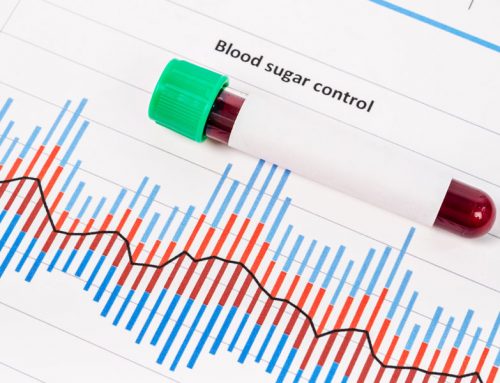
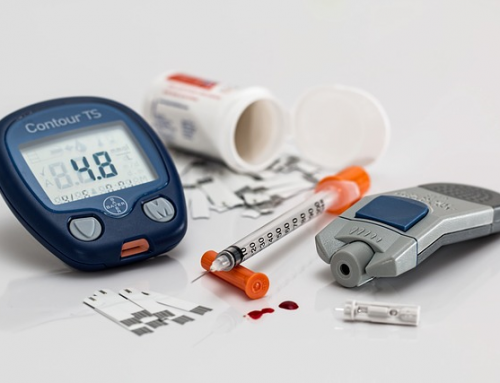
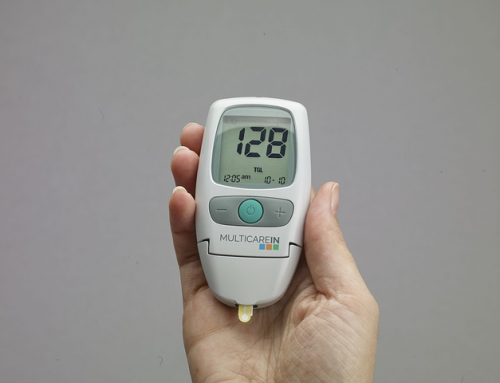


Leave A Comment